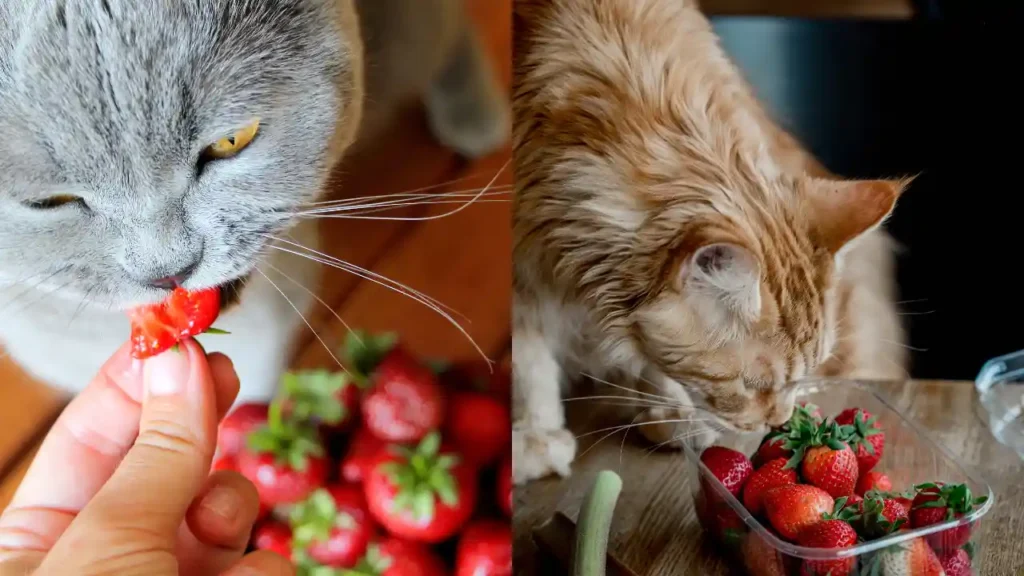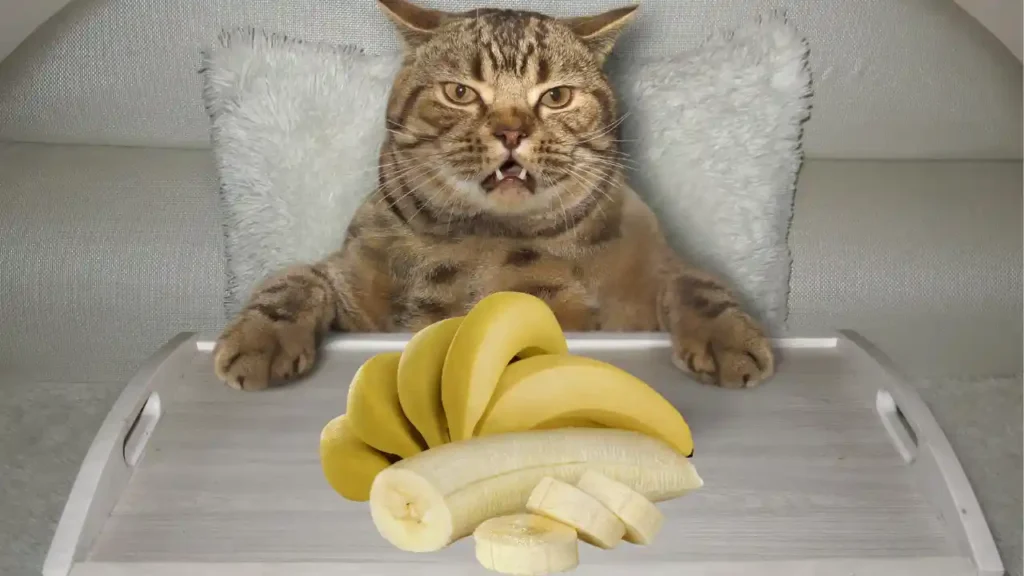Can Cats Eat Watermelon? Everything You Should Know
Key Takeaways Cats and Watermelon Yes, cats can eat watermelon in small, controlled amounts, and it is generally considered safe for them. Watermelon is a refreshing fruit that’s packed with water, making it a hydrating snack for humans, especially on hot days. Naturally, many cat owners wonder if this sweet treat can be shared with their feline friends. While cats are obligate carnivores, meaning their diet mainly consists of meat, they may show curiosity about fruits like watermelon. Some cats are naturally drawn to the scent or texture of certain foods, leading owners to wonder if watermelon could be a fun, safe snack for their pet. This curiosity is understandable, as sharing food with pets is common. However, knowing whether a particular food is safe for cats is always important before giving it to them. Is Watermelon Safe for Cats? Watermelon is generally safe for cats when given in small amounts. It is not toxic to them, unlike some other fruits. Watermelon contains a lot of water, which can help keep your cat hydrated, especially in hot weather. Nevertheless, it’s important to remember a few key points. Watermelon is high in natural sugars and does not provide any essential nutrients that cats need. Cats are obligate carnivores and have specific dietary requirements that watermelon does not meet. While a small piece of watermelon is unlikely to cause harm, it’s important to ensure that it is served in moderation. Too much watermelon can upset a cat’s stomach or cause digestive issues. Additionally, be cautious of potential choking hazards such as seeds and rind, which should be removed before offering watermelon to your cat. Nutritional Benefits of Watermelon for Cats Watermelon does offer some nutritional benefits that can be advantageous for cats, though these benefits are limited compared to their primary diet. Here are a few key points: Despite these benefits, it’s essential to remember that watermelon is not a substitute for a balanced diet. The primary source of nutrition for your cat should always be their specially formulated cat food. Watermelon can be a fun and hydrating treat, but it should be offered in moderation. Potential Risks of Feeding Watermelon to Cats While watermelon is generally safe for cats, there are some potential risks to be aware of: Overall, the key to feeding watermelon to your cat is moderation and careful preparation. Ensure that the treat is served in small, manageable pieces, and always remove any potential hazards like seeds and rind. How Much Watermelon Can Cats Eat? When it comes to giving your cat watermelon, moderation is essential. Here are some guidelines to follow: Remember, watermelon should not replace any of your cat’s balanced meals or be used as a primary treat. It’s best used as a special, hydrating snack that complements their regular diet. Can Cats Be Allergic to Watermelon? Yes, while it’s uncommon, some cats can have an allergic reaction to watermelon. Here are a few things to watch for: Although watermelon allergies are rare, being cautious and observant can help ensure that your cat remains healthy and happy. If you have any concerns about food allergies or dietary changes, consulting with your vet is always a good practice. How to Safely Prepare Watermelon for Cats To ensure that watermelon is safe for your cat, follow these preparation steps: By following these steps, you can safely prepare watermelon for your cat and reduce any risks associated with feeding it to them. Alternatives to Watermelon for Cats If you’re looking for other fruit options or treats for your cat, here are some alternatives that are also safe and enjoyable: While these alternatives can be a nice change from watermelon, always introduce new treats gradually and monitor your cat for any adverse reactions. A balanced diet and regular meals should remain the cornerstone of your cat’s nutrition. Signs That Your Cat Enjoys or Dislikes Watermelon Observing your cat’s reaction to watermelon can help you determine if they enjoy it or not. Here are some signs to look for: If your cat shows signs of disliking watermelon, don’t be discouraged. Every cat has individual preferences, and it’s important to respect their likes and dislikes. If your cat reacts negatively, try offering other safe fruits or treats to find something they enjoy. What If My Cat Accidentally Eats Too Much Watermelon? If your cat eats more watermelon than intended, it’s important to stay calm and monitor them for any signs of distress. Here’s what you should do: In most cases, cats that eat a little too much watermelon will recover without any serious issues, but it’s always good to be cautious and aware of how your cat reacts. Watermelon Treats for Cats: Creative Ideas If you’d like to make watermelon a fun treat for your cat, here are some creative and safe ways to incorporate it into their diet: When preparing these treats, always keep portion sizes small and avoid adding any additional ingredients that could be harmful to your cat. These creative ideas can make watermelon a fun and occasional treat while ensuring your cat’s health and safety. Conclusion Watermelon can be a refreshing and enjoyable treat for cats when given in moderation. Its high water content makes it a hydrating option, but it’s important to serve it correctly to ensure your cat’s safety. Always remove seeds and rind, and offer small portions to prevent digestive issues. Remember that watermelon should only be an occasional treat and not a regular part of your cat’s diet. Cats have specific dietary needs that watermelon cannot fulfill, so their primary nutrition should come from their regular cat food. By following the guidelines outlined in this post, you can safely share this fruit with your feline friend and provide them with a fun, hydrating treat. If you have any doubts or concerns about introducing new foods into your cat’s diet, consulting with your veterinarian is always a good idea. They can offer personalized advice based on your cat’s health and dietary needs. FAQ Section






